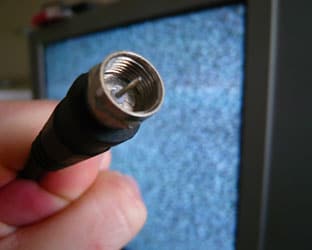A coalition of local television station operators, including operators of religious and low power stations, is preparing to stand firm to protect spectrum in the face of the FCC’s desire to repurpose parts of the television band for wireless broadband delivery.
The group says that television broadcasters already did their part, turning over a wide swathe of spectrum as part of the transition to digital. They believe that the FCC should be looking elsewhere for future needs – putting a particular emphasis on putting spectrum being hoarded, which it says they are currently incentivized to do since it creates false scarcity and higher prices.
The group says that the FCC has Channels 31-51 in its sights. They say the winning bidders will be the giant telecom corporations, as always, and the losers will be small, independent and local voices, along with the viewers who rely on them.
Lee Miller, a Lufkin TX broadcaster and the outgoing Chairman of the National Religious Broadcasters TV Committee, said, “Broadcasting is the most efficient use of the spectrum. We have members of our coalition that have developed ‘free broadband’ models ready to deploy over the next 6-12 months using broadcast TV spectrum. The plan is simple and cheap, and it is here and now – harness the power of broadcasting – its ability to deliver the vast amount of common content with one transmission to thousands of citizens without wasting thousands of discrete individual one-on-one Internet connections.”
Miller believes that television operators could be providing broadband now, if only the FCC would free them to do so.
“This is not a future technology that will take years to develop. This is a broadband technology that can be quickly and cheaply deployed right now by local broadcasters while still preserving traditional free over-the-air broadcasts. This is a win-win for our rural citizens – they get to retain local TV stations – in fact, America will gain thousands of additional free over-the-air stations – while finally getting the broadband services for which they have been waiting decades and maintaining their local freedom of speech against the strangle hold of national media giants. Best of all – what the FCC ignores – and what the cellular carriers don’t want you to know – is that a substantial portion of these broadband services will be absolutely free. Broadcasters will bring to broadband mobile Internet services what they know and do best – ad supported free services that combat the burden of ever increasing service charges from the cellular cartel.”
RBR-TVBR observation: The FCC offer to give broadcasters a piece of the auction action if they return spectrum is supposed to be voluntary. We’ve always felt that doing so would constitute accepting a one-time windfall at the cost of having a future. It is good to see small broadcasters feel the same way and are prepared to defend their spectrum – and we hope it is never necessary, because that would mean the FCC went back on its “voluntary” word.




